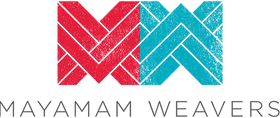What in the WORLD is FAIR TRADE?

With World Fair Trade Day coming up on May 11th, we’d like to talk about the topic of "fair trade." Ethical consumption, conscious consuming, purchase with purpose, fair trade, transparency, these are the current buzz words. This is great news, because if consumers are thinking about where their purchases come from, they can learn about the conditions that many of the world’s workers – including those in the United States – work under. Fair Trade is a philosophy and a movement to ensure that marginalized producers from around the world are given opportunities to do business with a developed market and earn a fair wage (among other things).
Do you know who made the t-shirt you bought last week or who picked the cocoa beans that were used to make your chocolate bar? If you knew that both products used child labor, paid minimal wages (not enough to survive on), didn’t allow breaks, and were forced to work in inhumane conditions, would you still purchase those products? No, probably not. When you make a purchase, you follow your values. In order to follow your values, you need to do a little research!

Ethical consumption is so trendy that even Coca Cola and Walmart, not known for treating their workers well – are taking advantage of these terms! If you see a corporation boast about being “sustainable” —look to see why. Globally there are many organizations genuinely working towards economic justice, but it can be pretty tricky to figure out exactly how to know if you really are purchasing ethically, or consciously, or fairly. Often, there is also the confusion between the words “Free Trade” and “Fair Trade”. (I am one of the guilty letting the wrong term slip out of my mouth!)
So, you want to purchase in a socially responsible way, and you're ready to do your research, now what? Many companies are making it easier for you to know where their products come from by being more transparent and sharing information about how their products are made, who makes the products and how. When they say ethical or with a purpose, their website will usually offer a section where they explain how they work which is their proof. Companies like Everlane and Able are publishing wages and the costs of making their products along with information about the factories or artisans. Another way to investigate is to consider the organizations that certify or verify companies that say they are fair trade. That takes research, too, because there are so many organizations each with its different point of view. So, a certification or verification symbol by itself is not enough. You need to research here, too, to see what their rules and processes are, what exactly are they telling you. Just like the pressure in the organic certification industry in the US, under pressure by agribusiness to broaden their definition, the more consumers are interested in worker conditions behind the products, the more large corporations want to persuade us that they too are practicing fair trade principles. Of course, that is what we want, that all workers are fairly paid, work under safe conditions, etc, but truthfully that does increase costs and eat into profits, which is what corporations are all about. There has to be transparency about worker conditions for ALL their products, not just a few.
Mayamam Weavers is a member of the Fair Trade Federation, which provides a “verification” that our processes of working with our artisans meet the principles. The Fair Trade Federation focuses on wholesale and retail organizations in the USA and Canada. To be fair trade verified, we must pass a high bar which demonstrates that we follow the nine principles of fair trade:
- Create opportunities for economically and socially marginalized producers
- Develop transparent and accountable relationships
- Build capacity
- Promote Fair Trade
- Pay Promptly and Fairly
- Support safe and empowering working conditions
- Ensure the rights of children
- Cultivate environmental stewardship
- Respect cultural identity
Each year we have to reassess two of those principles when we renew our membership. They are clearly not “certifying” anything about our artisan group in Guatemala, but evaluating our commitment to following the principles.
The Fair Trade Federation is closely allied with the World Fair Trade Organization, an international organization of Fair Trade Enterprises that includes certifying with onsite monitoring. They collaborate on defining the principles, creating policies, advocating, monitoring and promoting fair trade.

Celebrated on May 11th this year, World Fair Trade Day is an inclusive worldwide festival of events celebrating Fair Trade as a tangible contribution to sustainable development, especially the economic empowerment of small producers, gender equality in workplaces and responsible production practices. To find events near you, visit https://wfto.com/fairtradeday2019/.
For additional fair trade resources:
- The Fair World Project fairworldproject.org offers in depth treatment of many issues.
- The Good Trade thegoodtrade.com is a digital media and lifestyle brand that covers sustainable fashion and lifestyle.
- The Good Shopping Guide goodshoppingguide.com (based in the UK) offers a comprehensive guide to a wide variety of purchases.
- Ethical Unicorn ethicalunicorn.com (also based in the UK) offers in depth articles on a wide variety of issues.
- The World Fair Trade Federation has a podcast https://wfto.com/fairtradio



Leave a comment